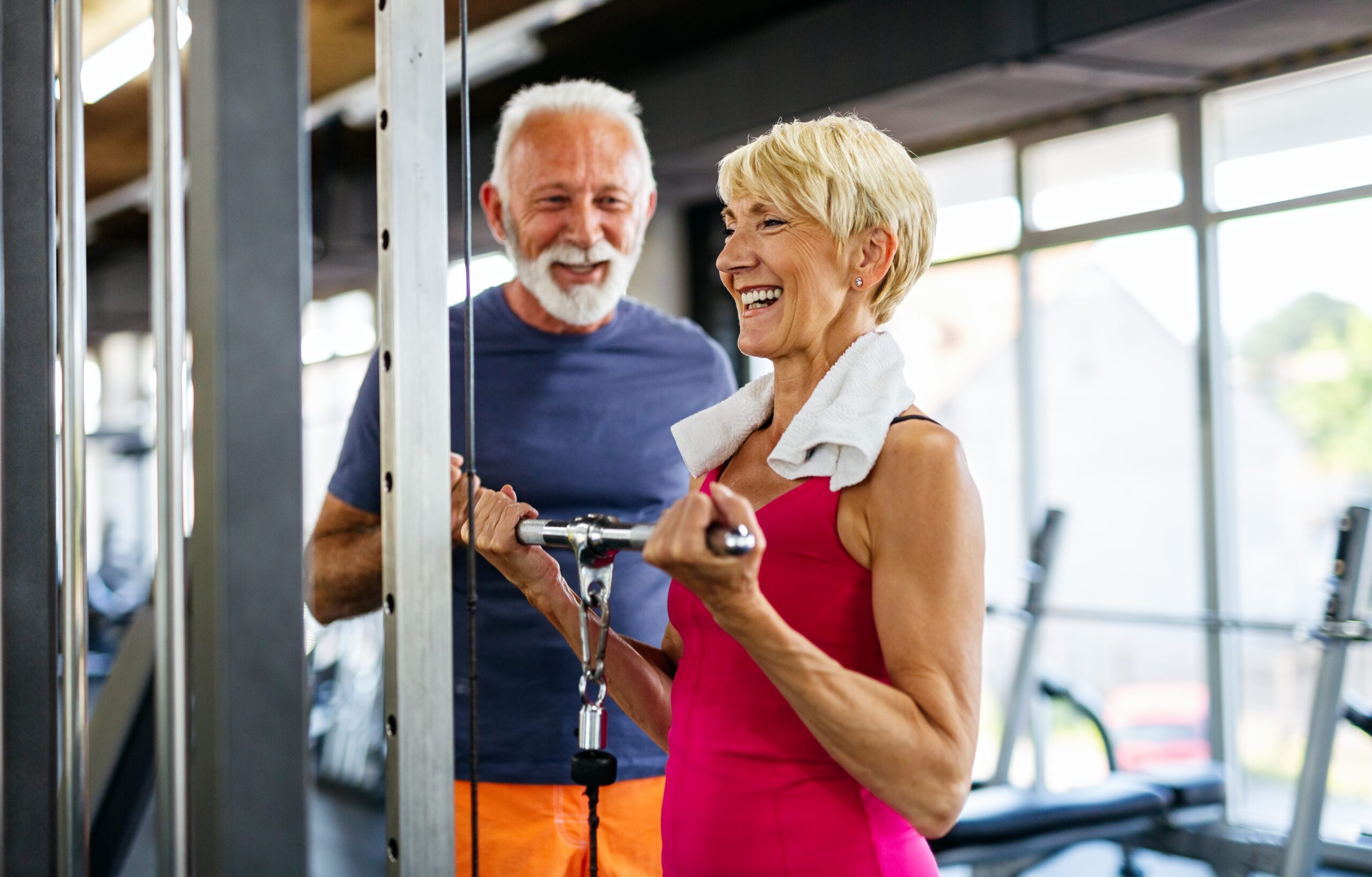What Does Aging Gracefully Look Like?
“Aging gracefully includes being able to continue doing what you love to do on your own terms and having the freedom to make those choices,” says Valerie Bomar, the associate executive director of Covenant Living at Inverness (CLI) in Tulsa.
It is important, as the years add up, to make purposeful choices that can help you continue living life to its fullest. Staying connected to friends and family, considering personal safety, keeping up with exercise, and maintaining a healthy diet are just some of the ways seniors can stay at the top of their game. These decisions will allow them to stay involved with beneficial activities and be able to make their own choices.
In keeping this level of autonomy over specific choices, the idea of gaining years does not have to mean detracting joy.
“From the personal viewpoint of an employee who has worked with seniors for over 30 years, I believe aging gracefully also begins with breaking stereotypes and stigmas that can exist within a retirement community,” says Debbie Miller, wellness director at Spanish Cove Retirement Village in Yukon. “We can inspire more positive views of aging.”
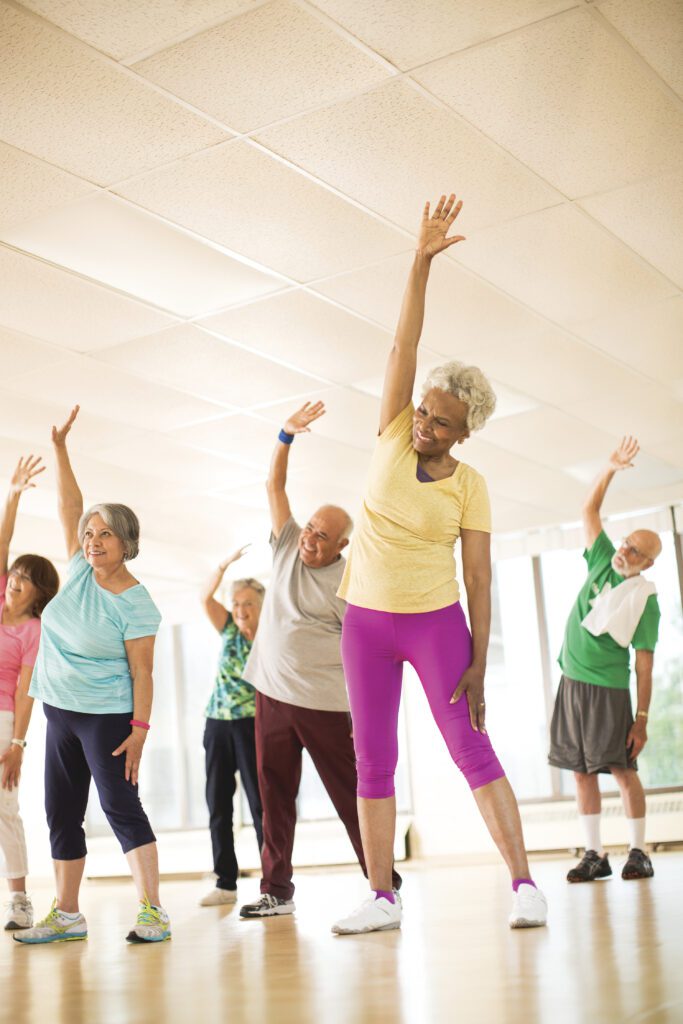
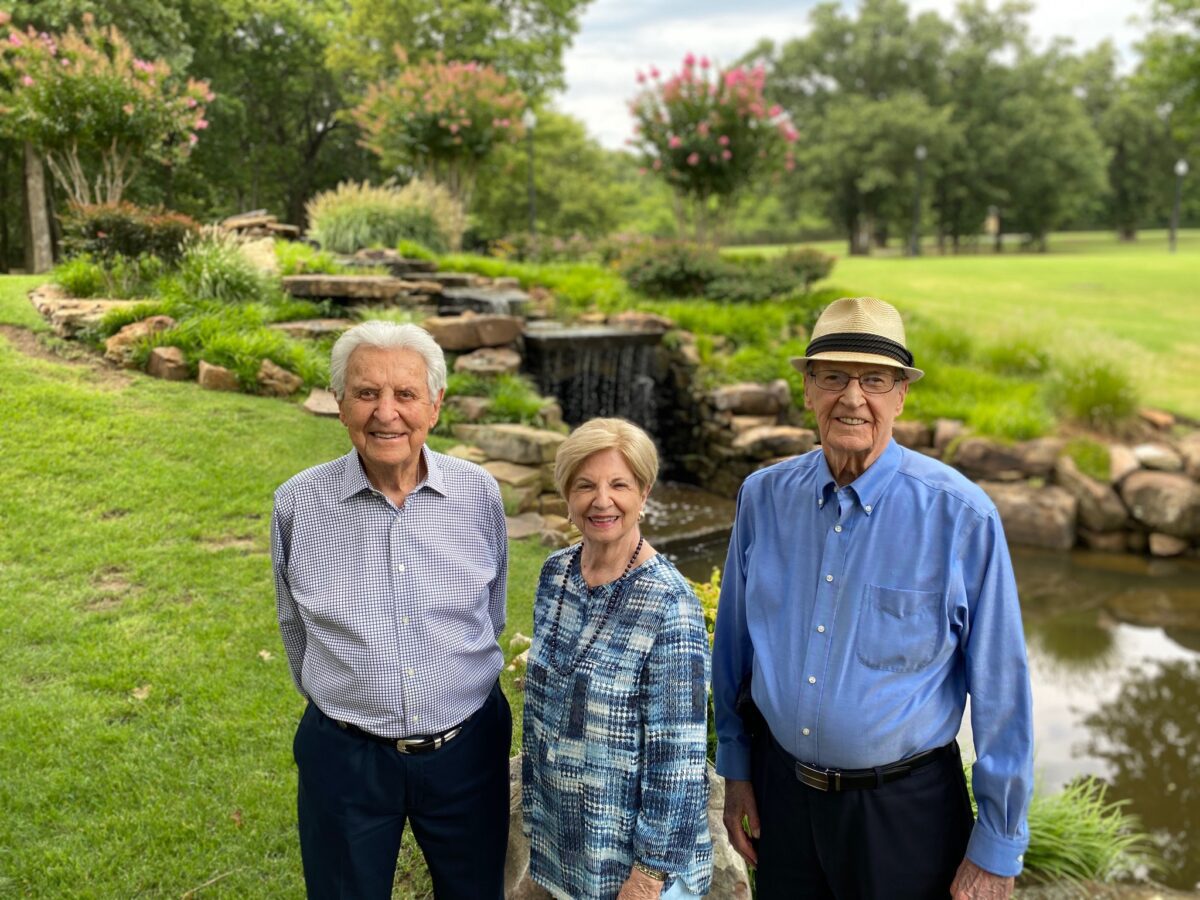
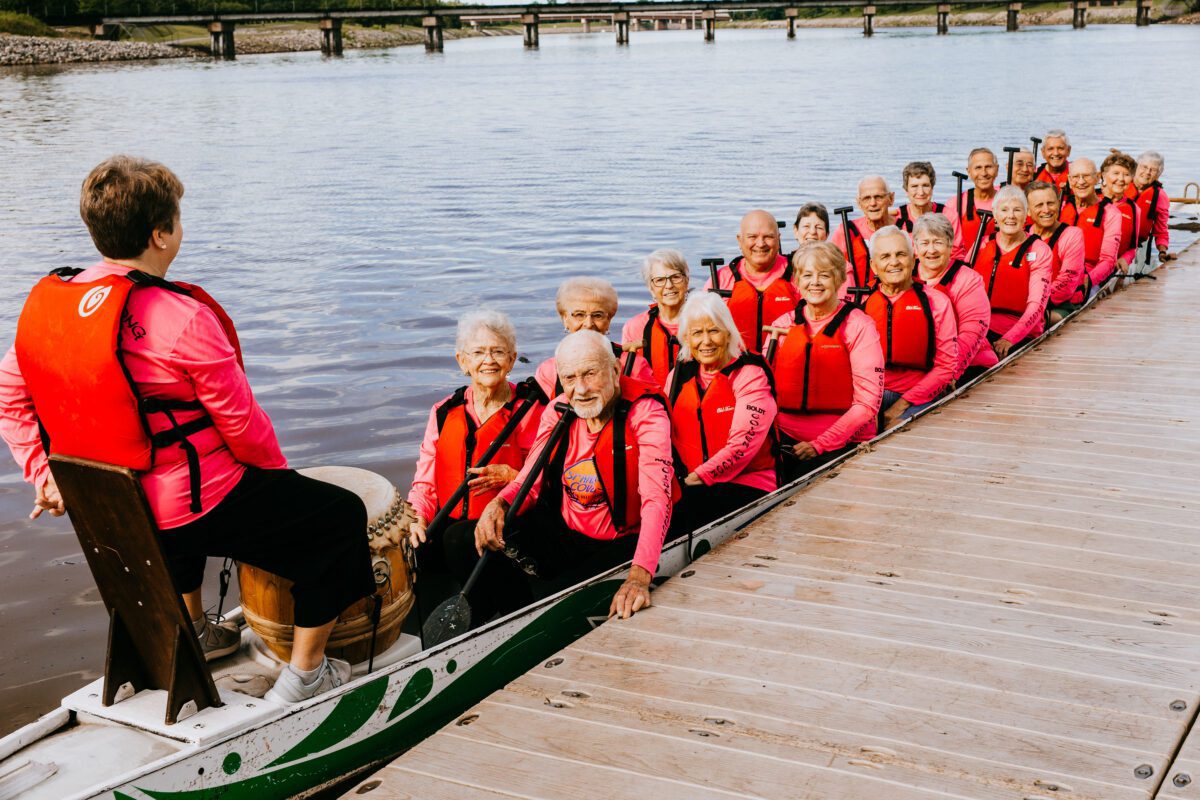
Staying Connected
One important way to age gracefully is to fight the tendency to lose connections. Loneliness has been shown to be a real risk to happiness for seniors and to even shorten life expectancies. Living in a senior community goes a long way toward ensuring the proximity of relationships, but just being there is not enough for many. Participation in offered activities is key to warding off isolation, but it is important that the resident’s individual preferences, interests and abilities are taken into consideration.
“We encourage residents to continue to explore the passions they’ve always enjoyed, such as gardening – we have numerous places for them to garden on campus, or sing in our choir, which meets weekly and performs concerts for our residents,” says Miller.
Gardeners and singers living at Spanish Cove can find an outlet for their interests and make some new friends along the way, but these suggestions are just the tip of the iceberg. Other activities include book clubs, entertainment programs, community events, and trips to local museums, businesses and arenas. And the reason Spanish Cove offers such a wide range of ways to participate is important.
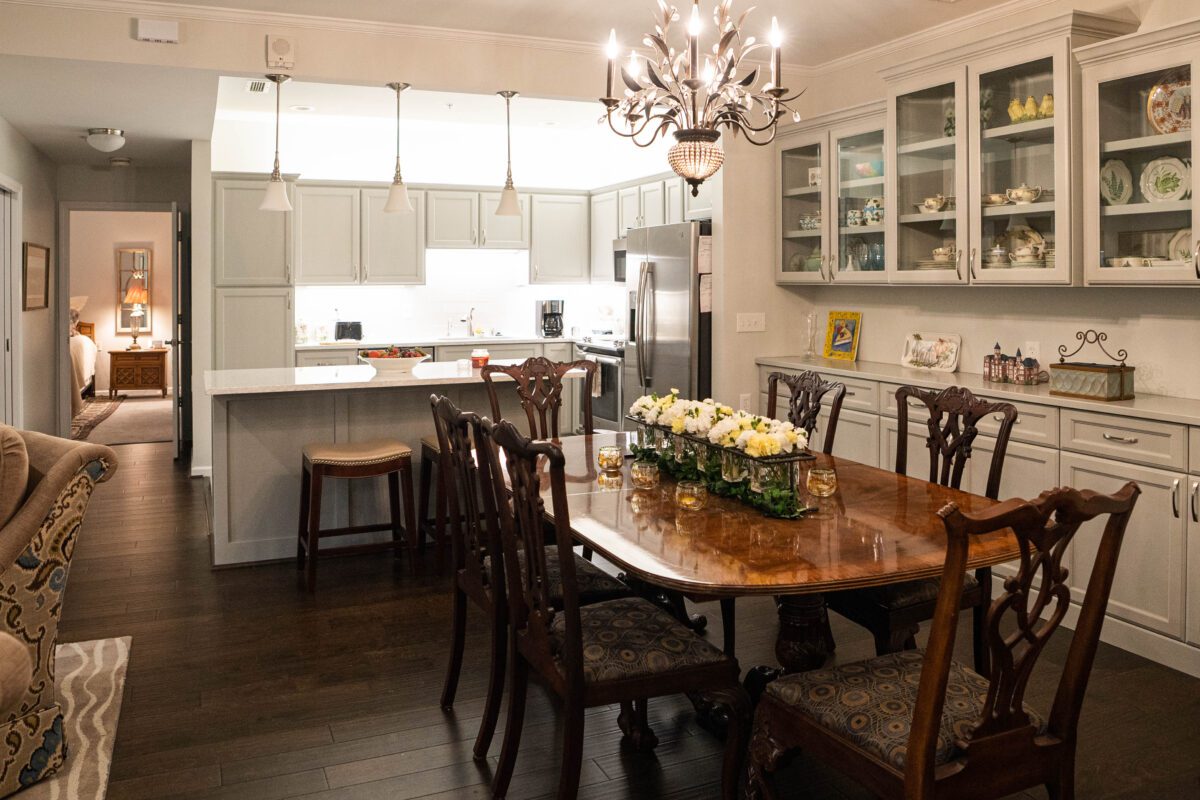
“Spanish Cove believes the social dimension of wellness may be the most important for helping older adults live a life filled with purpose, meaning and engagement,” says Miller.
CLI is another example of a senior community that recognizes its residents’ need for connection. From the moment a new resident arrives, CLI is a warm and welcoming community, says resident life director Sharon Goforth. Other residents and staff welcome the newcomers and help them get connected. New residents can choose from mixers and community dinner options, live music performances to attend, and even opportunities to eat out with others.
“Our lounge opens for happy hour most nights with an opportunity to enjoy a drink – alcohol or not – and some good conversation,” she says.
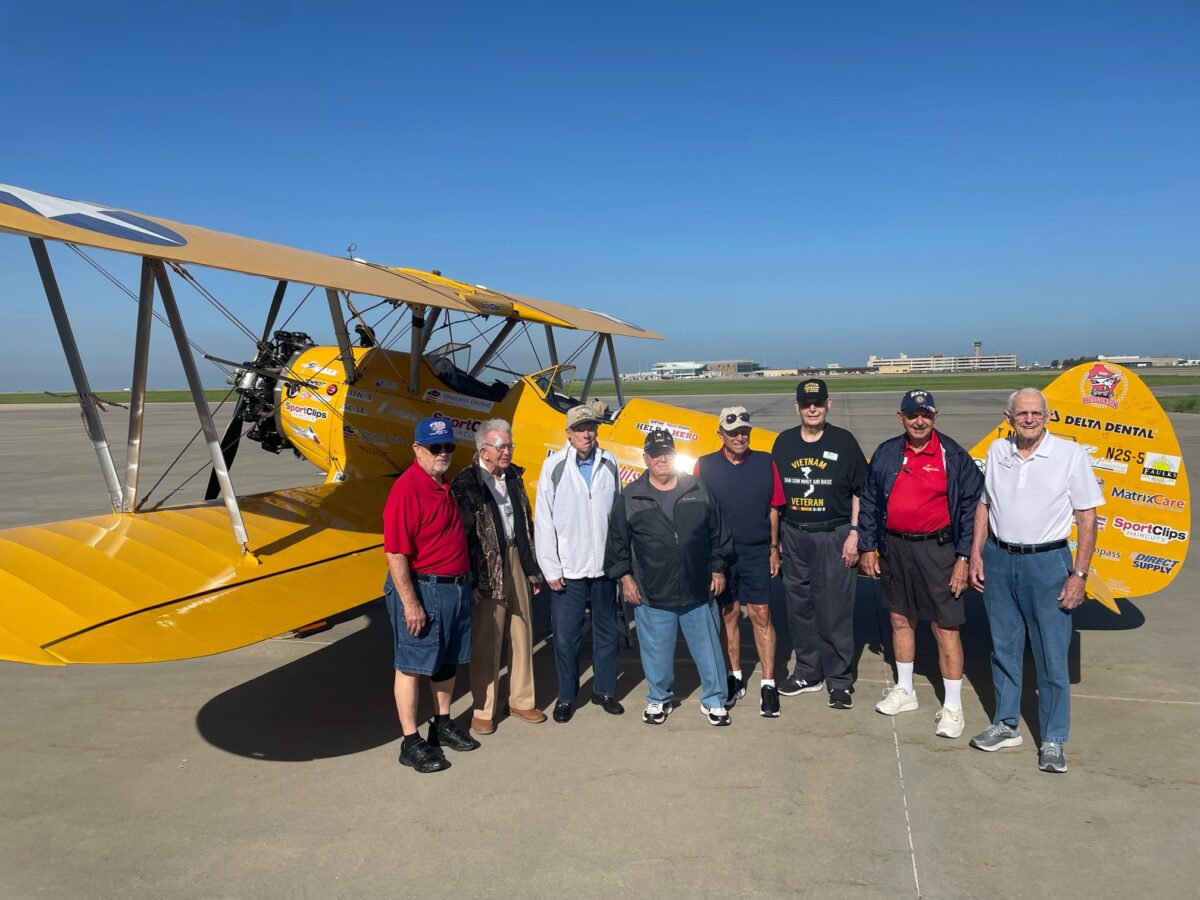
Safety First
Just as staying connected with friends and family can become more of a challenge as the years add up, safety concerns tend to change and increase as well. While the basics of staying safe may not change, some of the peripheral considerations of safety may need to be reassessed.
Wearing a safety pendant is an option any senior might want to consider. This safety method used at CLI is instructed to be activated in the case of an unexpected medical emergency, according to Graham Woods, the community’s security and transportation manager. This device can then alert security personnel to a problem and give them the resident’s precise location.
Staying safe in changing weather conditions is something seniors should also keep in mind. While staying aware of weather may not be a new idea in Oklahoma, seniors’ ability to respond may change over time. Those living in a retirement community should be informed on where to go during a storm and think through how they will get there.
“Living in Tornado Alley, we take storm season seriously,” shares Woods. “[CLI has] two certified storm shelters that can house all of our residents, and we have security personnel trained to assist in a mass shelter-in-place should a tornado warning be issued in our immediate vicinity.”
Both CLI and Spanish Cove offer safety fairs and informational sessions to help seniors stay educated. These offer details on the latest internet and phone scams, as well as physical considerations for safety, financial planning, veterans’ benefits and assistance with medications.
Fit in Mind and Body
One important way seniors can contribute to their overall safety and wellbeing is by keeping physically fit. But the ways they exercise may look different between 35 and 75. Some programs or activities that worked during their younger years may not work for older adults.
“Physical activity is an important part of healthy aging,” says Lauren Kotrys, a nutritionist with YMCA of Greater Tulsa. “Understanding limitations plays an important role in finding the right type of exercise to participate in. As we age, we tend to lose muscle mass and balance, [and] stability becomes more challenging.”
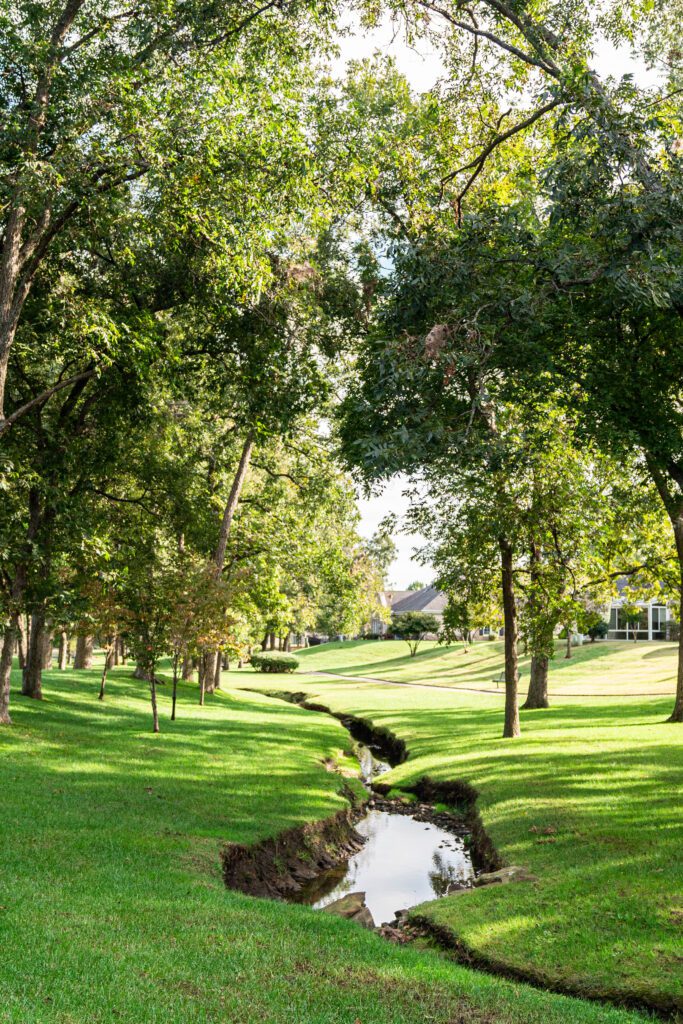
Kotrys recommends three types of activity seniors should strive for on a weekly basis: moderate intensity aerobic activity, muscle strengthening and balance work.
Most retirement communities offer opportunities to stay fit.
“Spanish Cove offers an array of fitness options tailored to older adults,” says Miller. Its inclusive approach to wellness drives leadership to offer a broad scope of exercises. This includes yoga for balance, water exercise and line dancing for a heart-healthy aerobic workout, and Stretch and Strengthen for muscle mass improvement. They even have a senior dragon boat paddling team which was the first of its kind in the state, according to Miller.
But what signs should seniors watch for that indicate a certain exercise has become too much?
“When exercising, a good rule is: if it hurts, stop the exercise,” says Kotrys. “The main thing to remember is to execute proper form and body alignment throughout the exercise.”
She also recommends attending to a proper warm-up and cool down to ensure best benefits.
Eating Right
The other main consideration when it comes to staying healthy is your diet. But should diet change as people get older? Is there a need to eat less as metabolism slows?
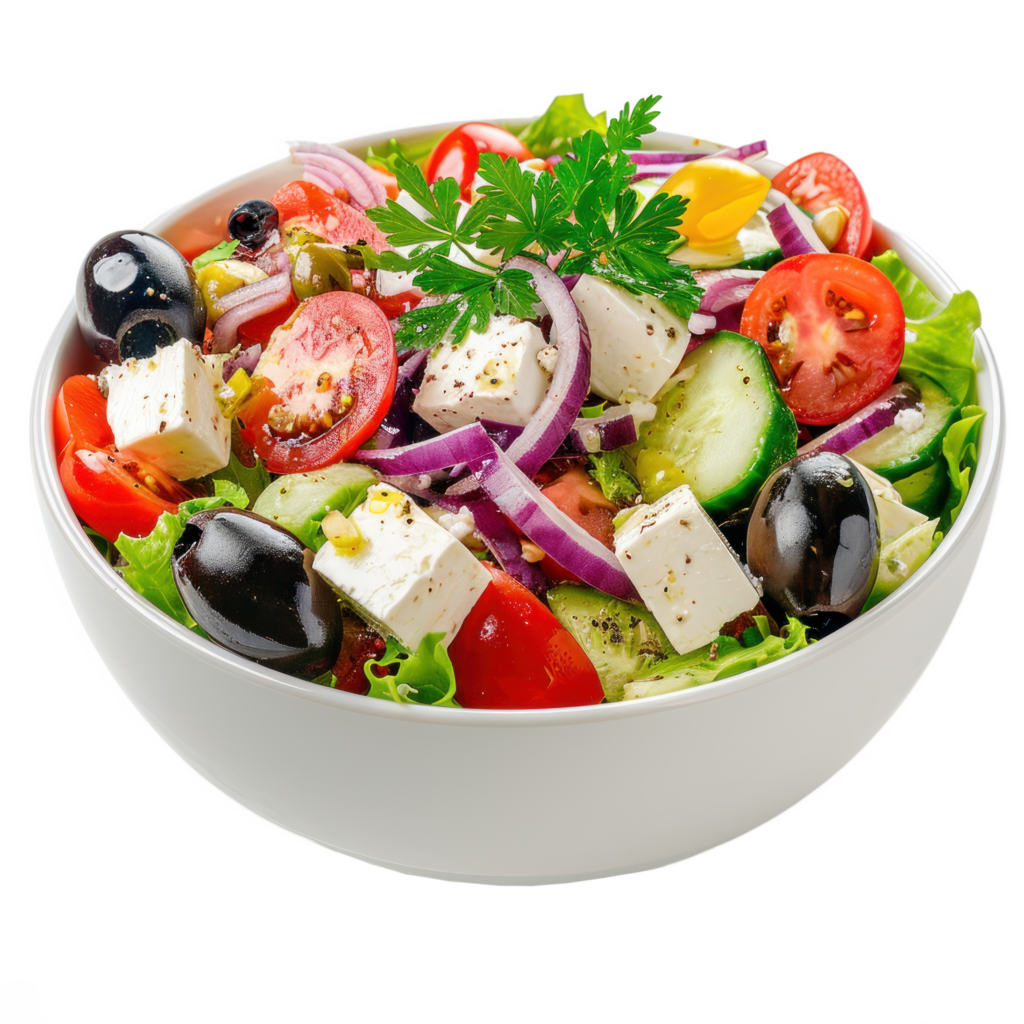
Kotrys says the answer to that question is a solid “maybe.”
“If, with age, a more sedentary state finds you, then you may need to consume fewer calories overall to help balance out the inactivity,” she says. But if seniors maintain an active lifestyle, there may not be a need to decrease calories.
At CLI, Doris Hayden, dining manager, offers several guidelines to consider for eating in later years. Factors such as staying hydrated, as seniors are at higher risk of dehydration; watching fiber intake to ward off constipation; getting adequate lean protein, healthy fats, calcium and vitamin D; and focusing on nutrient dense foods such as fruits, vegetables, whole grains and low-fat dairy. Hayden also recommends checking with a healthcare provider or dietitian regularly to make sure things are on track.
The Need for Volunteers
In order to offer a wide range of activities and the connection that seniors need to age gracefully, many retirement communities rely on the services of volunteers.
“Our volunteers lead dance classes, play music, provide respite for caregivers and help with community projects,” says Miller at Spanish Cove, which is celebrating 50 years embedded in the Yukon community on Sept. 19. Spanish Cove also partners with several regional universities, bringing in students who work on developing products and services that allow seniors to more effectively age in place.
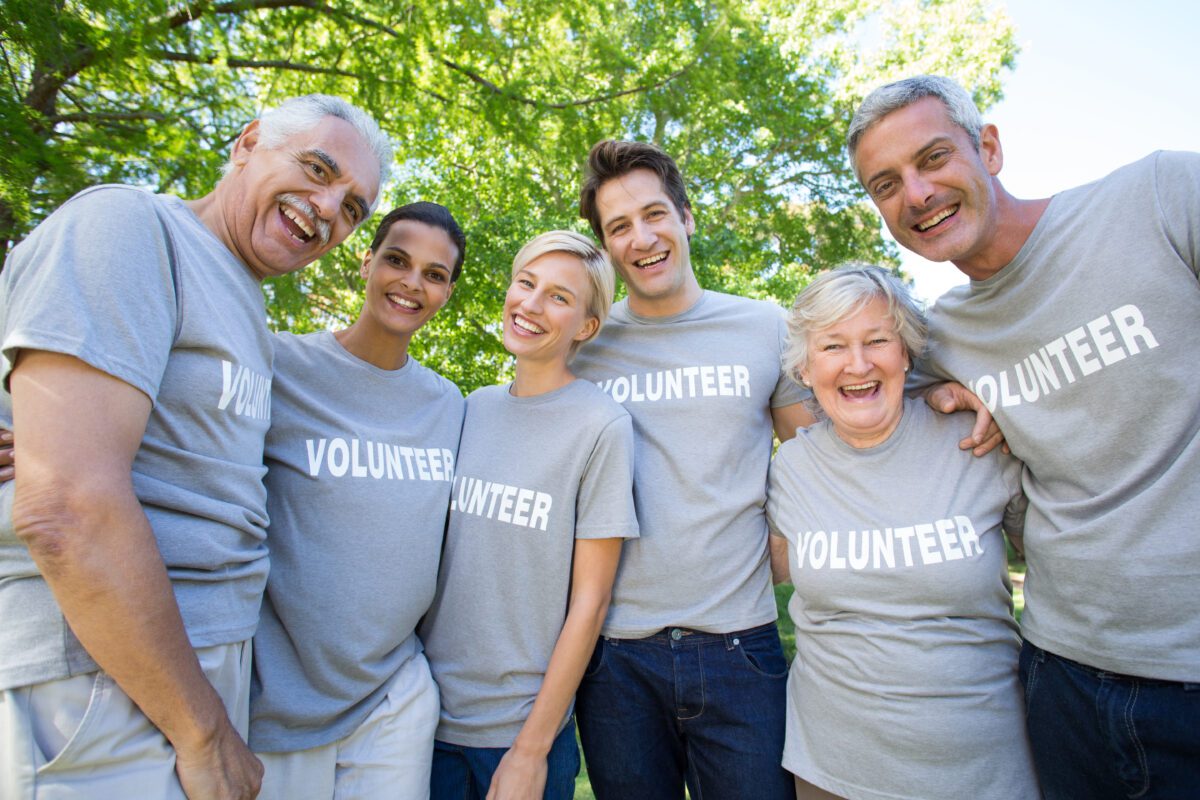
CLI has a similar need for volunteers to enrich the lives of its residents.
“Many of our programs can benefit from extra hands, such as arts and crafts classes,” says Goforth. She describes how volunteer musicians offer performances for residents and assist with worship services. Other volunteers help seniors enjoy the beautiful campus by gardening or merely basking in the sunshine together. There is a need for volunteers working with residents with dementia.
“If you have a skill or just a heart to serve, we can work with you to find a way,” says Goforth.






















